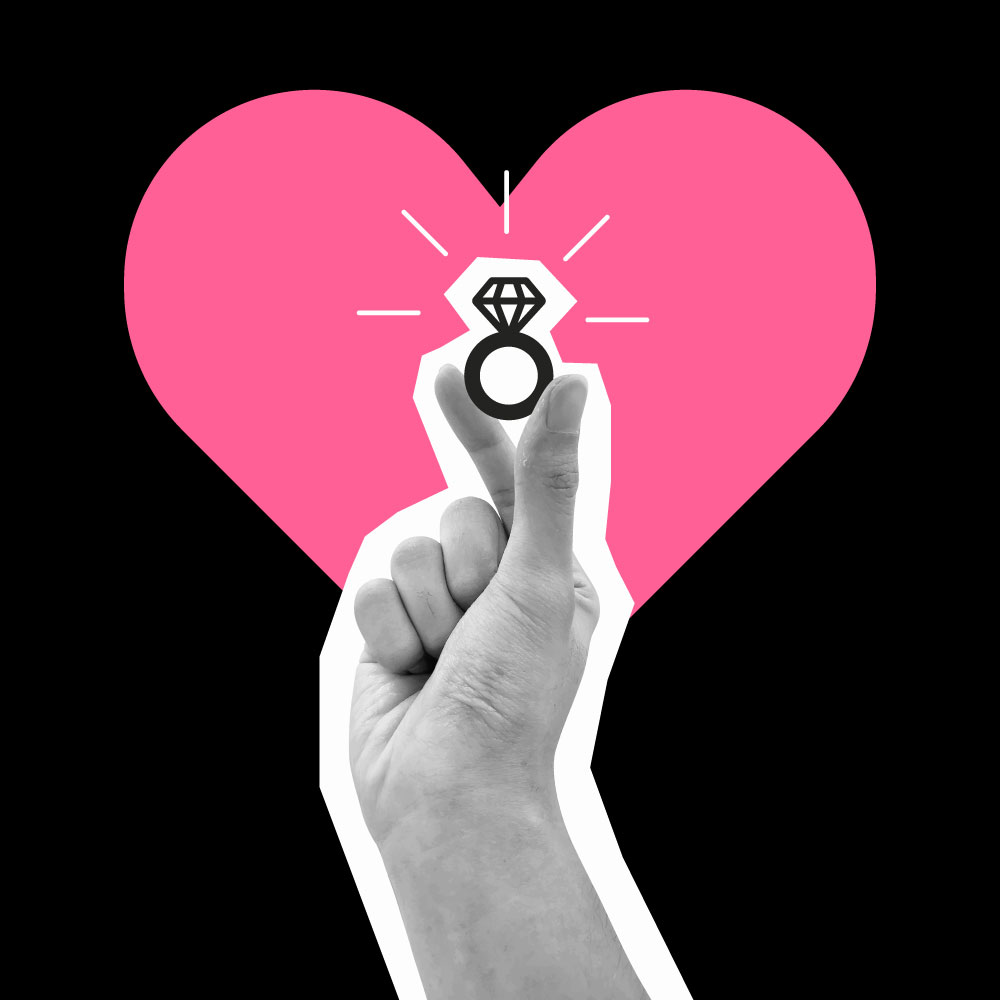What Can I Do? Something.
Kelly Hall arms you with the knowledge you’ll need to help with anxiety and/or depression.
Anxiety and depression are incredibly difficult to get through in and of themselves, and they can seem impossible when someone feels like they are going through it alone. These conditions can be debilitating for those experiencing them, and they need support from people they trust to help cope. However, many people don’t know how to talk to their friend about mental illness, so it can often become a taboo subject that many supporters avoid. How do you help a friend experiencing anxiety or depression?
Feeling with People
In Brené Brown’s 2013 RSA talk, she describes empathy as “feeling with people.” She claims that even if one has not shared the same experience of the other, they can“connect with something in [themselves] that knows that feeling.” She says, “empathy helps drive connection,” therefore even if you don’t know what to say to your loved one who is in a dark place, it’s okay to just be a validating presence for them.
Brown states it is more meaningful to say something like, “Wow, I don’t even know what to say right now, I’m just so glad you told me,” as opposed to a phrase starting with “At least…” For example, “At least you still look nice” to someone who was just dumped. It doesn’t take away the pain of a breakup. She explains that when someone tries to put a silver lining around an issue, it actually invalidates the feelings of the hurting individual.
What can we take away from that? Don’t give your friend empty advice or only point out the good things in their lives. First acknowledge their pain and sit with them in it. When you don’t know how to respond to your loved one who is depressed or anxious, it’s okay to ask them how you can help. Sometimes individuals may need someone who can just listen and be with them during a difficult time. Other times, your depressed or anxious friend may be so overwhelmed with their stress and just need a distraction for the moment to help them cope.
Identifiers to Look Out For
Anxiety and depression often go hand-in-hand and can play off of each other. However, for those unfamiliar with clinical depression or anxiety, it may be difficult to tell the difference between clinical depression/anxiety and generally feeling down. The answer can depend on many things, but the most important is the extent of an emotion that person is feeling and experiencing. Most mental illnesses stem from an exaggeration of basic human emotions; for example, depression is an exaggeration of sadness, and anxiety is an exaggeration of fear or feeling loss of control.
Anxiety
There are many types of anxiety disorders, but generally, a person experiencing anxiety will experience a sense of heightened stress or worry for an extended period of time. This heightened stress or worry can be about work, school, relationships, social situations, or specific things that cause fear. Anxiety may also make you feel irritable, unable to sleep, fatigued, exhausted, or restless. It can also show up as physical stress or pain, such as muscle pain, stomach aches, headaches, or panic attacks. Panic attacks are episodes of intense fear that can cause the heart to beat rapidly, as well as sweating, shaking, chest pain, chills, etc. Some describe this as feeling like a heart attack, or feeling like one is going to die. Anxiety is closely related to depression, and in some cases, can make the depression worse.
Depression
With depression, you may experience a combination of different symptoms for weeks at a time, or longer. Sleep is typically one of the first things to be affected when experiencing anxiety and/or depression. This can mean you either sleep way more or way less than usual. In addition to a general sad or depressed mood, you may have a lack of motivation to do normal activities or experience a loss of interest or pleasure. This may mean hobbies or general interests may no longer be as appealing as before. You may feel anxiety about school or work, and not be motivated to do homework or participate in school activities like before. This can also apply to relationships with friends or family members; social situations may trigger anxiety, causing someone to want to withdraw and avoid such situations. Sometimes, an individual’s appetite may change, leading to a change in weight. Going deeper, a clinically depressed person may feel like they are worthless or a burden to other people. This can turn into guilt, which is often irrational guilt. When someone experiences severe depression, thoughts of suicide may also be present or increased.
If you or a friend are experiencing these symptoms, reach out and talk to someone about it. You don’t have to go through it alone.
Typically, people experiencing anxiety or depression don’t like to open up to the people who can potentially support them, because they fear they are just a burden to others—therefore reinforcing the feeling of being alone. In addition, those who experience thoughts of suicide or self-harm may be reluctant to ask for help or open up about their pain because it may not be received well. For youth, the response from parents or authority figures may seem like a punishment or judgment, rather than support. It is important to understand and communicate that it is okay to have thoughts of suicide and/or be depressed, and it’s even more okay to ask for help and support to get through it. Going to the hospital or being visited by the police can help keep a person safe in the moment or for the night, but it doesn’t always take away suicidal thoughts or internal distress. Sometimes it can be an incredibly intimidating and scary experience that deters hurting individuals from opening up in the future.
What About Suicide?
If a friend comes to you struggling with thoughts of suicide or self-harm, ask them if they have a safety plan in place. This can include talking to them about whether their thoughts of suicide are specific (with a plan and intention to follow through), or if their thoughts are rather vague with nothing specific. Many times, people just want their temporary pain to be over, rather than wanting to actually die. If your friend has a specific plan, make sure to ask them what their plan is, and also find out if they have access to the means to go through with their plan. For example, if your friend’s plan is to overdose or cut themselves, do they have access to pills or sharp objects? If they have access to lethal means, then work with your friend to secure those means in order to ensure their safety. This can include you keeping their medication or giving it to another family member or friend, monitoring it, only doling out one dose at a time, (rather than giving them full access to the whole bottle), locking knives, razors, or other sharp objects away, or taking them out of the house. If your friend has access to firearms, it is incredibly important to talk with the owner of the firearm to remove it from access of your hurting friend. Then, help your friend work through their coping skills and utilize their social supports to help calm them down until their crisis passes. If you need additional support in this process, please call the National Suicide Prevention Lifeline at 1-800-273-8255 (Suicide Prevention Resource Center).
Do Something
Just as Bramwell Booth must have felt overwhelmed seeing the great need in 19th Century England, it’s easy to feel overwhelmed with the needs of our hurting community today. But take courage! William Booth’s response to his son Bramwell—“Do Something!”—still applies today. Depend on the wisdom of God to help you. Then step out in faith, and do something.
3 Ways To Be There For Your Depressed Friend
Mary Leigh Keith (2016) writes about three basic ways to be there for your depressed friend.
- Your presence. Don’t try to fix everything for them or give them empty advice—to sit,
listen, and be there with them. - Your care for their physical needs. Your friend undergoing depression may have lost motivation or energy to do simple self-care, such as eating a full meal, bathing, or sleeping. To help, you can bring or cook them food, draw them a bath, or make sure they are taking care of themselves.
- Your patience. Depression is not healed overnight; it takes a lot of time, effort, possibly medication, and most importantly, support. Don’t fall into the trap of blaming your friend for not being as fun, or not trying hard enough, as your friend is probably already thinking that about himself or herself. Supporting your friend means loving them and not judging them. Be patient.
Bring the name of your friend to God in prayer. Ask God to meet them where they are and to help you be the friend they need.
References:
Suicide Prevention Resource Center. (n.d.). “Counseling on access to lethal means (CALM).” Retrieved from http://training.sprc.org/enrol/index.php?id=3
[The RSA]. (2013, Dec 10). “Brené Brown on empathy.” [Video File]. Retrieved from https://youtu.be/1Evwgu369Jw
American Psychiatric Association. (2013). “Diagnostic and statistical manual of mental disorders: DSM-5.” Washington, D.C: American Psychiatric Association.
Keith, M.L. (2016). “3 Ways to care for your depressed friend.” Cru. Retrieved from https://www.cru.org/train-and-grow/life-and-relationships/emotions/3-ways-to-care-for-your-depressed-friend.html



